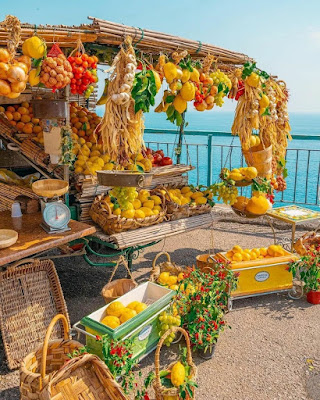When A Woman Becomes a Man: Albania's "Sworn Virgins"
Once upon a time, tribal areas in Albania were plagued by blood feuds and honor killings in rural villages. Women had to become men.
These women were obliged to socially take up the role of a man, to protect and save their families.
To fit into a solidly patriarchal society, they adorned male clothing and learned male gestures and habits.
The woman becomes a sworn virgin, by swearing an irrevocable oath, in front of twelve village or tribal elders, to practice celibacy.
They are called the Burnesha or virgjinesha and are Sworn Virgins of Albania.
I stumbled upon its existence and it reminded me of another. A similar but not exact practice centuries ago in some Igbo communities in Southeastern Nigeria.
For sacrificing their innate nature, the Burneshas are afforded male privileges in society. They were allowed to hang out with men, becoming accepted and respected as the boys. Often referred to as "He" and "Uncle"
Although some were motivated by different reasons; It was sometimes the only way a woman, whose family had committed them to an arranged marriage could opt out without dishonoring the groom's family, risking a blood feud.
It was also the only way a woman could inherit her family's wealth.
Or take part in a blood feud and if she was killed, her death would be counted as a full life, for the purpose of calculating blood money rather than half a life because she is a woman.
A practice I find intriguing as well as troubling. That a woman was considered half a human being. A woman who brings forth life into the world is considered half a life. I have often wondered about the lack of intelligence and intuition in our society.
These women are not homosexual or transgender but have sworn a life of celibacy denying carnal knowledge of man or woman, not to meet the criteria of enrolling as a nun at some Catholic convent but as a sacrifice for their families.
The tradition of sworn virgins developed out of the Kanuni I Leke Dukagjinit (English: The Code of Lekë Dukagjini, or simply the Kanun), a set of codes and laws developed by Leke Dukagjini and used mostly in northern Albania and Kosovo from the 15th century until the 20th century. The Kanun is not a religious document – many groups follow it including Roman Catholic, Albanian Orthodox, and Muslims
The Kanun dictates that families must be patrilineal (meaning wealth is inherited through a family's men) and patrilocal (upon marriage, a woman moves into the household of her husband's family). Women are treated like the property of the family. Under the Kanun women are stripped of many human rights. They cannot smoke, wear a watch, or vote in their local elections. They cannot buy land, and there are many jobs they are not permitted to hold. There are even establishments that they cannot enter.
Although it is a dying practice, there are only a few left. I find it distressing that a woman could not head a household. except she socially shed her femininity and acted like a man.
In some Igbo communities in Southeastern Nigeria. There was also a practice that literally died, where a family who had no male child to carry the family name, mandated the first daughter to become the head of the family and remain unmarried. She however was allowed to have children by her lovers.
In many Igbo communities today, a woman can still not inherit family wealth.
Is the patriarchal rule of thumb, the way our societies were meant to be? Is it in harmony with nature? I doubt it. Has the world benefited from a Patriarchal system of life or have we trod the path of confusion?
These are questions I often ask myself.


Comments
Post a Comment